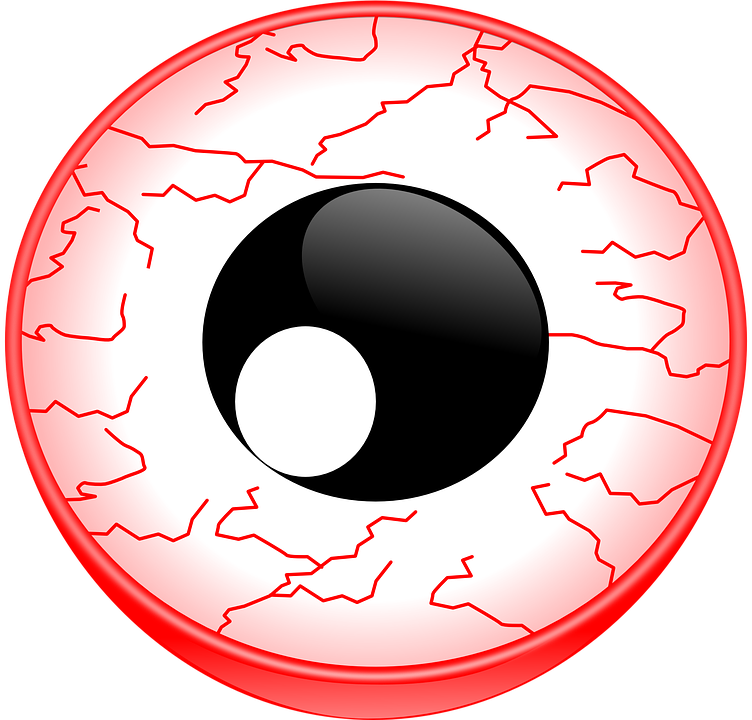Ayurvedic Methods to Improve Eyesight
Ayurveda – you have probably heard of this term before but not all may be too familiar with it. Ayurvedic medicine is considered to be one of the oldest holistic healing systems. Holistic means ‘the whole body’ – so Ayurveda deals with the entire body cleansing and restoration. This approach was first introduced over 3,000 years ago in India and it is still being widely practiced today in the whole world. Its primary objective is to achieve a delicate balance between the mind, body and spirit. It is believed you are in good health if your body, mind and spirit are in harmony with the universe. Ayurveda is being practiced in all areas regarding humans’ health. Many believe that Ayurveda can help with eyesight problems thus there are several ayurvedic methods to improve eyesight being practiced all around the world. One can try to improve their eyesight or at least provide the eyes what they need in order to stay healthy. Such is a steady supply of nutritious foods and vitamins. This helps not only your eyes but your entire body to stay hydrated and strong.
There are two vitamins that have been proven to help with eyesight issues: Vitamin A and Lutein


Lutein is an antioxidant naturally found in fruits and vegetables such as spinach and kale so it’s easily accessible to everyone. There are other foods rich in vitamins and antioxidants: carrots, collard greens, Swiss chard, zucchini and Brussel sprouts (lutein) and sweet potatoes and butter (vitamin A). You’ll notice that the green vegetables contain lots of antioxidants which act as anti-inflammatories and help with various diseases as well as with eyesight problems. Broccoli is also extremely nutritious and full of antioxidants such as sulforaphane which is an antioxidant that fights inflammation thus keeping your body and your eyes healthy. Ginkgo Biloba is a proven remedy for improving eyesight. This leafy green also protects from glaucoma and macular degeneration (or age-related degeneration, a medical condition which can affect one’s vision to the point of no return or it can simply cause a person to experience blurred vision). Ginkgo biloba is a powerful herb so it would be best to consult a doctor in order to see if you should consume it or not. Furthermore, this herb should not be used by children or diabetics.
More on Foods for Eyesight Improvement
Almonds are full of Omega 3 fatty acids, vitamin E and antioxidants which are capable of naturally improving one’s eyesight. These also help in memory and concentration improvements. Almonds are best consumed in rare form but of course, you can either blend them and use them in smoothies, pastes, etc. You would need to repeat almonds consummation every day for a few months until improvements are noticeable. Fennel is also a very powerful herb. Ancient Romans called it ‘the herb of sight’. This antioxidant-filled herb is the culprit for slowing down cataracts progression. One of the recipes that use fennel is as follows: combine with almonds and some natural sugar (best would be Stevia) and grind this until it reaches powder texture. Consuming one tablespoon of this powder is guaranteed to help with eyesight issues in as little as 40-50 days! Wild asparagus is another great choice for improving one’s eyesight. You would need a teaspoon of wild asparagus coupled with some honey every day repeated for a few months until you start to notice improvements in your eyesight.
Amla is an Indian gooseberry which is known to help with improving one’s eyesight. It is full of vitamin C which helps improve the function of retinal cells and other antioxidants which are proven to promote healthier capillaries. Simply mix a cup of water with a few spoons of amla juice and drink it in the morning and evening. Triphala, also known as ‘the three fruits’, is a powerful Ayurvedic tonic which combines three fruits: Amla (previously mentioned), Haritaki and Bibhitaki. All three have strong medicinal properties which are why they are used in Ayurveda. Triphala is usually digested but in order to help with eyesight issues, it can be used in the form of eye drops as well. Although used mainly in Ayurveda practices, researchers have emphasized that the therapeutic benefits of Triphala can also help with inflammation, eye soreness or redness and eye strain.

Rosa damascena, or rose water, is a common ingredient in numerous Ayurvedic therapies because it possesses antiseptic and antibacterial properties and due to its cooling and soothing properties, it is often used as eye rinse. Researchers have found out that rose water is one of the best natural eye wash solutions directed towards fighting inflammation, irritation, and redness.
Bilberry serves as an excellent antioxidant herb which helps stimulate the blood flow in the entire human body, and thus it can help with restoring the proper blood flow balance throughout your eyes in order to prevent any soreness, eye strain, etc. It is considered one of the best remedies for night blindness and poor eyesight in general. Eating fresh bilberries every day can help your eyesight immensely! Blackcurrant and blueberries are also berries with strong antioxidant properties which can help you restore better eyesight during the night as they stimulate the regeneration of rhodopsin which is a protein in the retina that helps you see better in low light situations. Black currant, on the other hand, has an anthocyanoside concentrate which helps eyes better adapt to the dark. It is also said to provide relief from temporary vision issues such as longer exposures to computer displays. Guava, watermelon, and tomatoes have been found to help prevent the emergence of cataracts and these are fairly easy to come by.
Barefoot Walking to Improve Eyesight
Another Ayurvedic method for improving one’s eyesight is barefoot walking. This is one of the most important exercises that every human being should practice on a daily basis for their overall health. Ayurveda believes that humans need a more physical connection with nature, thus the bare feet which touch the ground are said to have enormous medicinal benefits – and let’s face it, each and every one of us usually spend their day constrained by their socks, shoes, sneakers, etc. The best practice is to walk barefoot on green grass in the morning so your entire body can utilize the natural remedies which come from the earth.
Ayurvedic Exercises to Improve Eyesight
Eyes exercises are also important. It’s one of the best ways to improve your eyes muscles and prolong the blood flow through your eyes. If you are spending a lot of time in the office in front of a computer, there are some exercises that you can do in order to improve your eyesight, or at the very least, help the eyes not to degrade while looking at the screen all day long.
Sit back 50 centimeters away from the screen. Do the following for one minute:
– look left and then right, and then at the center of your screen
– then repeat the same, from right to left
– then look upwards and downwards on your screen, and then focus on the center to allow your eyes to align better
You can repeat this exercise several times throughout the day but make sure that you keep up with the 1-minute time-frame. People with glaucoma should benefit from casual walking exercises during the week. This should be done daily for 20-30 minutes. Walking helps reduce blood pressure and helps enhance the blood flow to the eyes, in turn restoring the function of the optic nerve so it stays healthy. People with macular degeneration can also benefit from walking on a daily basis because exercising daily lowers one’s risk of contracting AMD (age-related macular degeneration).
One research showed that people who walked 30 minutes per day at least 3 times a week had a 70 percent lower chance of contracting AMD. Overall, spending time outdoors and being connected with nature is one of the best ayurvedic methods to improve eyesight. In order to prevent nearsightedness, spending time in nature will help you immensely. Myopia, a medical condition which causes a person to be nearsighted, is said to be completely preventable by having children spend more than 2 hours every day outside. Spending more time in the daylight is bound to help not only children but grownups as well – so get out there and release your body to nature.
One of the reasons myopia does not bode well in the daylight has been found in children playing outside – primarily because they have to focus on objects from a distance thus boosting their vision. According to Ayurvedic methods, washing your eyes with cold water in the morning removes any waste that may be collected on or inside your eyes while you were asleep. This is extremely important to remember because your morning habits may dictate how the rest of your day is going to fare. You can also mix cold water with Triphala powder (but let it soak overnight) and use this as your morning eye rinse system – it is going to freshen up your entire face but your eyes will benefit from this potion the most! Conjunctivitis is one of the conditions which can be prevented by rinsing your eyes every day – simply soak neem leaves in lukewarm water and wash your eyes in the morning. This method alleviates the burning sensation and swelling caused by conjunctivitis.

Tarpana and Nasya
Another excellent Ayurvedic method to improve eyesight is Tarpana and Nasya. Tarpana centers around building a dam around one’s eyes by using powdered black gram while medicated ghee is poured in the dam in order to soak the eyes. This method is usually used to treat retina or optic nerve issues, as well as diabetic retinopathy. Nasya uses medicated oils and powders which are instilled in the nose in order to remove any accumulated toxins from nose, eyes, throat, and ears. It is used for treating redness, watery and itchy eyes, glaucoma and conjunctivitis.
Yoga to Improve Eyesight
Practicing yoga has gigantic medicinal benefits for the entire body, thus it helps with eyesight problems as well. Gently massaging your eyeballs (with your eyelids closed) is surely going to relieve the pressure that’s accumulating every day so it’s important to try repeating this exercise every day. Rolling/rotating your eyeballs in different directions, blinking and palming is recommended to be practiced on a daily basis in order to restore the blood flow to the optic nerve so it does not feel pressured for longer periods of time throughout the day.
Some researchers {Ruiz, F. ‘’Yoga for the Eyes’’ Yoga Journal (2007)} have found the following exercises to be extremely helpful:
– Try moving your eyeballs up and down without blinking – think about looking at a clock in front of you and tracing a line between the 12 and 6.
-After about 10 repetitions of this exercise, rub the palms of your hands together and cup your eyes so you can feel the warmth seep through – this is called palming.
-You can follow this by moving your eyeballs horizontally, from 9 to 3, and diagonally, from 2 to 7 and 11 to 4. These exercises may help relieve the extra pressure that we put on muscles when looking at nearby objects, like a book or computer screen

Closing Thoughts Regarding Ayurveda
Ayurveda proposes sticking to a healthy diet filled with nutrients, antioxidants and lots of vitamins in order to improve your eyesight. In order to strengthen your eyesight, including stewed apples, sprouted chickpeas and a raw carrot to your morning diet. Make sure that you eat a lot of vegetable soups throughout your busy week schedule. Green leafy vegetables and whole-wheat bread are a sight for the eyes! Ensure that you have a steady supply of fresh water every day and that you drink lots of it in order to stay hydrated. Many people believe that drinking coffee on a daily basis actually releases stress from their bodies but it is actually water that does it – coffee will only dehydrate the body and thus affect your eyes as well.
As you can see, Ayurveda does not have a single direction to turn to in order to help improve one’s eyesight but it’s rather a set of paths leading to your one and only goal – establish a natural connection with your body which encompasses leading a healthy lifestyle, exercising daily and improving and balancing your diet with lots of leafy greens and vitamins, plus the antioxidants.
Having full control of your body will benefit you from the inside out and you will be able to lead a more fulfilling life thanks to caring about yourself. Practicing Ayurveda can only help you and it will most surely never harm you if done properly, so get ahead and reap the benefits that Ayurveda offers in abundance for your entire body as well as your eyes.



